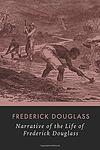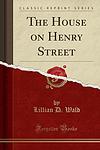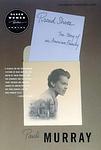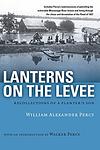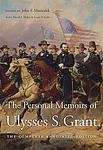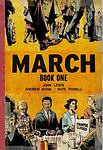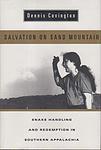The Greatest "Autobiography, American History" Books of All Time
Click to learn how this list is calculated.
This list represents a comprehensive and trusted collection of the greatest books. Developed through a specialized algorithm, it brings together 300 'best of' book lists to form a definitive guide to the world's most acclaimed books. For those interested in how these books are chosen, additional details can be found on the rankings page.
Genres
Autobiography is a literary genre that focuses on the life story of the author. It is a first-person account of the author's experiences, thoughts, and emotions, often including significant events and milestones that have shaped their life. Autobiographies can be written by anyone, from famous public figures to ordinary people, and can cover a wide range of topics, including personal growth, career achievements, struggles, and relationships. This genre provides readers with a unique insight into the author's life and perspective, making it a popular and engaging category of books.
The "American History" category encompasses a broad range of books that delve into the events, figures, and forces that have shaped the United States from its pre-colonial days to the present. This genre includes works on pivotal moments such as the American Revolution, Civil War, and civil rights movements, as well as studies of political, social, and cultural developments across various eras. It covers biographies of influential leaders, analyses of policy changes, and examinations of societal shifts. Whether providing comprehensive overviews or focusing on specific incidents or decades, books in the American History category aim to illuminate the complexities of the nation's past, offering readers insights into the events that have defined the American experience and the context for its ongoing evolution.
Countries
Date Range
Reading Statistics
Click the button below to see how many of these books you've read!
Download
If you're interested in downloading this list as a CSV file for use in a spreadsheet application, you can easily do so by clicking the button below. Please note that to ensure a manageable file size and faster download, the CSV will include details for only the first 500 books.
Download-
1. The Souls of Black Folk by W. E. B. Du Bois
This seminal work is a collection of essays that explores the history and condition of African Americans at the turn of the 20th century. It delves into the issues of race, class, and the socio-economic realities faced by black people post-emancipation. The author employs a combination of history, sociology, and personal narrative to present a powerful critique of American society, highlighting the struggle for civil rights, the importance of black spirituals, and the concept of "double consciousness" - the idea of viewing oneself through the lens of a society that sees you as inferior.
-
2. Narrative of the Life of Frederick Douglass by Frederick Douglass
This autobiographical book provides a first-hand account of the life of a former slave, chronicling his experiences from his early years in bondage, his struggle to teach himself to read and write, his daring escape to freedom, and his subsequent rise as a prominent abolitionist. The narrative is a powerful exploration of the physical and psychological effects of slavery, making it a significant work in American history.
-
3. The Autobiography of Benjamin Franklin by Benjamin Franklin
This book is an autobiography of one of America's founding fathers, detailing his life from childhood to adulthood. The author shares his journey from humble beginnings as a printer's apprentice to becoming a successful inventor, writer, businessman, and statesman. The book provides an insight into his thoughts and philosophies on various subjects such as education, self-improvement, and public service, offering a unique look at the early American history through his eyes.
-
4. Incidents in the Life of a Slave Girl by Harriet Jacobs
This book is a poignant autobiography that depicts the life of a young woman born into slavery in the southern United States in the early 19th century. The narrative provides a harrowing account of her childhood and adolescence, marked by abuse and exploitation. In her desperate quest for freedom, she spends seven years in a tiny attic, hiding from her oppressive master. The narrative serves as a powerful critique of the brutalities of slavery, and a testament to the author's indomitable spirit and pursuit of freedom.
-
5. Life on the Mississippi by Mark Twain
This book is a semi-autobiographical account of the author's experiences as a steamboat pilot on the Mississippi River before the American Civil War. It provides a detailed and humorous depiction of life and society along the river, including the author's own journey from an eager young apprentice to a seasoned riverboat pilot. The book also includes a travelogue of a journey down the Mississippi River much later in life, offering a look at the dramatic changes brought about by industrialization and the Civil War.
-
6. The Fire Next Time by James Baldwin
This book is a powerful exploration of race relations in America in the early 1960s. The author presents his experiences and observations in the form of two essays. The first is a letter to his 14-year-old nephew, discussing the role of race in American history. The second essay takes a broader look at the civil rights movement and the author's own experiences with religion and identity. Throughout, the author presents a passionate plea for the recognition of the humanity and dignity of all people, regardless of race.
-
7. Up from Slavery by Booker T. Washington
The book is an autobiographical account of a former slave who rises to become a prominent educator and speaker. It chronicles his journey from enslavement during his childhood, through his struggles for education and his founding of Tuskegee Institute in Alabama. The narrative emphasizes the importance of education, hard work, and self-reliance as the keys to African American advancement, and provides a firsthand perspective on post-Civil War American South.
-
8. Twenty Years at Hull-House by Jane Addams
"Twenty Years at Hull-House" is a memoir that recounts the author's experiences co-founding and running a settlement house in a poverty-stricken, immigrant neighborhood in Chicago. The book details the struggles and triumphs of the community as they navigate social, economic, and cultural challenges, while also offering insight into the author's own evolution as a social reformer. Throughout, the author emphasizes the importance of empathy, understanding, and community engagement in addressing social inequality.
-
9. Hell's Angels by Hunter S. Thompson
This book provides an immersive exploration of the infamous motorcycle gang, the Hell's Angels, as seen through the eyes of a journalist who spent a year living and riding with them. The narrative delves into the lifestyle, mindset, and public perception of these notorious figures, offering a raw and unfiltered look into their world. It also examines the wider cultural context of the 1960s, including societal anxieties and the counterculture movement, and how these factors intersect with the Hell's Angels' existence.
-
10. Coming Of Age In Mississippi by Anne Moody
The book is a powerful autobiographical account of a young African American woman's life growing up in rural Mississippi during the 1940s and 1950s. It vividly portrays the struggles with poverty, racism, and sexism in a deeply segregated society, as well as her burgeoning activism. The narrative follows her journey from childhood, through her college years, and into her involvement with the Civil Rights Movement, offering a personal perspective on the fight for racial equality in the United States. Her story is one of courage and determination, reflecting the broader experiences of many black Americans during a pivotal era in American history.
-
11. The True History of the Conquest of New Spain by Bernal Díaz del Castillo
This book provides a first-hand account of the conquest of Mexico by the Spanish during the 16th century. It offers a detailed narrative of the events, battles, and interactions with native tribes, including the Aztecs. The author, a soldier in the Spanish army, provides a unique perspective on Hernán Cortés and his tactics, the politics of the time, and the cultural and religious practices of the indigenous people. The book also highlights the hardships, challenges, and ethical dilemmas faced by the conquistadors.
-
12. The House on Henry Street by Lillian D. Wald
"The House on Henry Street" is a memoir by a prominent social worker and public health advocate, detailing her experiences and work in the Lower East Side of New York City in the early 20th century. The book chronicles her establishment of a settlement house in the area, which provided a range of services including healthcare, education, and employment assistance to the community. The narrative offers a poignant insight into the struggles and resilience of the immigrant population during this period, and the author's pioneering role in public health nursing and social reform.
-
13. Proud Shoes by Pauli Murray
"Proud Shoes" is a poignant memoir that chronicles the complex history of an African American family through the lens of the author's own lineage. The narrative delves into the lives of the author's grandparents, delving into the antebellum South, the impact of the Civil War, and the enduring legacy of slavery and racial discrimination. The book weaves personal stories with broader historical events, offering a rich tapestry of resilience, struggle, and the quest for racial equality. It is a testament to the strength of family bonds and the author's quest to understand and honor her ancestors' experiences and the social forces that shaped their lives.
-
14. Crusade For Justice by Ida B. Wells
"Crusade for Justice" is an autobiography that chronicles the life and work of a pioneering African American journalist and activist who bravely led an anti-lynching crusade in the United States during the late 19th and early 20th centuries. The book details her personal experiences with racial discrimination and her tireless efforts to document and fight against the injustices faced by African Americans. Her narrative provides a powerful insight into the civil rights struggles of her time and her unwavering commitment to justice and equality, making her one of the most significant figures in American social reform.
-
15. Thirty Years As A Slave And Four Years In The White House by Elizabeth Keckley
This memoir offers a poignant and powerful account of an African American woman's life journey from the harsh realities of enslavement to her emancipation and subsequent role as a successful dressmaker and confidante to the First Lady of the United States during the Civil War era. The narrative provides a unique insider's perspective on daily life in the White House, as well as intimate observations of presidential family dynamics during one of the nation's most tumultuous periods. Her story is one of resilience and determination, highlighting the struggles and achievements of a woman who navigated the complex intersections of race, gender, and politics in 19th-century America.
-
16. Lanterns on the Levee by William Alexander Percy
"Lanterns on the Levee" is a memoir that captures the author's life growing up in the Mississippi Delta during the early 20th century. It provides a vivid portrayal of the Southern aristocracy, their traditions, and their struggles with racial tensions and changing societal norms. The memoir also delves into the author's personal struggles with his identity and his search for meaning in life, offering a unique perspective on the American South during a time of significant change.
-
17. Personal Memoirs of Ulysses S. Grant by U. S. Grant
This book is a first-person account of the life and military career of a notable American Civil War general who later became the 18th President of the United States. It covers his childhood, his time at West Point, his experiences in the Mexican-American War, and his crucial role in the Civil War. The memoir also delves into his presidential years, offering a unique perspective on historical events from a key player's point of view. It is widely praised for its honesty, insight, and clear, straightforward style.
-
18. Pride Of Family by Carole Ione
"Pride of Family" is a non-fiction work that delves into the rich and complex history of an African American family across four generations, from the antebellum era through the civil rights movement. The narrative weaves together personal memoir, historical documentation, and oral testimony to explore the lives of both free and enslaved ancestors, revealing the intricate social fabric of black life in America. The author embarks on a journey of self-discovery, unearthing stories of resilience, dignity, and survival, while confronting the legacies of slavery and racial identity. This book is a testament to the endurance of family bonds and cultural heritage amidst the challenges posed by a society deeply scarred by racial divisions.
-
19. A Woman's Civil War by Cornelia Peake McDonald
This book is a personal account of a woman's experiences during the American Civil War, offering a detailed and poignant perspective on the hardships and turmoil of the era. The narrative is drawn from the diaries and letters of the author, who lived through the conflict and witnessed its impact on her family, community, and way of life. Her writing provides a unique window into the domestic and social challenges faced by women, as well as the broader political and military upheavals of the time, capturing the emotional and physical landscape of a country divided by war.
-
20. March: Book One by John Lewis
"March: Book One" is a graphic novel that depicts the early life of a key figure in the American civil rights movement. Raised in rural Alabama, he grows up inspired by the activism surrounding the Montgomery Bus Boycott and the words of Martin Luther King Jr., which sets him on the path of nonviolent protest. The novel highlights his commitment to the fight for equal rights and his journey from a young boy on a farm to one of the key figures in the civil rights movement.
-
21. Zeitoun by Dave Eggers
The book is a non-fiction account of a Syrian-American contractor named Zeitoun who decides to stay in New Orleans during Hurricane Katrina. Despite the chaos, he paddles around the city in a canoe, helping those he can. However, he is arrested and accused of looting, leading to a harrowing experience in prison. The narrative explores themes of family, survival, and the breakdown of civil liberties in times of crisis.
-
22. A Diary From Dixie by Mary Boykin Chesnut
This historical work offers an intimate glimpse into the life and times of the American South during the Civil War through the eyes of a high-society woman. Her diary entries, written between 1861 and 1865, provide a personal and detailed account of the daily struggles, political intrigue, and social dynamics of the Confederacy. As the wife of a prominent Confederate official, the author was well-placed to observe and comment on the key figures and events of the era, revealing the complexities and human realities behind the historical conflict. Her candid observations capture the tumultuous emotions of a nation at war, as well as the personal experiences of loss, hardship, and the changing social fabric of the South.
-
23. Salvation on Sand Mountain by Dennis Covington
The book is a personal journey of a journalist who, while covering a murder trial of a snake-handling preacher, becomes deeply involved in the culture of snake handling in Southern Appalachia. He explores the history and religious significance of snake handling, while also wrestling with his own faith and the nature of religious ecstasy. The narrative is a blend of true crime, personal memoir, and religious exploration.
-
24. Harriet, The Moses Of Her People by Sarah H. Bradford
This book provides a detailed account of the life and achievements of an iconic African American woman who escaped slavery and became an instrumental figure in the Underground Railroad, leading dozens of enslaved individuals to freedom. The narrative delves into her courageous exploits, her role as a spy and nurse during the Civil War, and her continued advocacy for the rights of African Americans and women. The biography celebrates her indomitable spirit, strategic brilliance, and unwavering commitment to justice, painting a portrait of a true American hero whose legacy of selflessness and bravery continues to inspire generations.
-
25. The Yellow House by Sarah M. Broom
"The Yellow House" is a memoir that tells the story of a hundred years of the author's family and their relationship to home in a neglected area of one of America's most mythologized cities, New Orleans. The narrative follows the author's journey from growing up in the titular house in New Orleans East, a largely ignored part of the city, to her pursuit of education and a career as a journalist, and her eventual return to New Orleans after Hurricane Katrina. The book explores themes of race, poverty, and inequity in America, while also being a deeply personal exploration of family, identity, and place.
Reading Statistics
Click the button below to see how many of these books you've read!
Download
If you're interested in downloading this list as a CSV file for use in a spreadsheet application, you can easily do so by clicking the button below. Please note that to ensure a manageable file size and faster download, the CSV will include details for only the first 500 books.
Download
